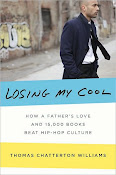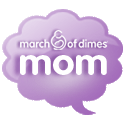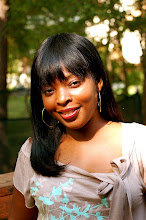
She hadn't felt well from the moment she stepped onto that plane, but my mother didn't let the flu-like symptoms or the sore back or the pain in her jaw stop her from going to South Carolina for her family reunion. She had rheumatoid arthritis and slipped disks in her spine--she could handle a little discomfort. Besides, she wanted to see her sister, and reconnect with her brother, and go back to the house that she was raised in--the house she called home. That was a Thursday.
By the Sunday, she was so lethargic, so out of it, she couldn't move from the couch or get out any words--just slurs. Still, she insisted she'd be fine and she didn't need anybody's emergency room visit. Until, that is, my auntie thought to get my Dad, who was back home in New York, on the phone. He's quite persuasive, my Dad. But minutes after he convinced his wife of 38 years to go to the hospital, it was too late. My mother died right there on the floor of her childhood home, in practically the same spot her own father died some 20 years earlier. EMS workers revived her long enough to get her to the hospital, where a respirator kept her alive for only a few hours longer. And just like that, she was gone.
The cause of my mom's death was a heart attack.
None of us knew she had heart problems, and clearly none of us were hip to this one true thing: Women tend not to have the classic Hollywood-style "clutch the heart" symptom when they're suffering an attack. Indeed, had my aunt, my uncle, my mother, or anyone else who had been tending to her during those four days she was sick known that the heart attack symptoms women face are much different from those that men tend to have--the back and jaw pain, flu-like symptoms, and fatigue are classic female heart attack symptoms--perhaps my mom could have received life-saving treatment.
Bettye Millner is gone from here, but we need to use her story to be smarter about our bodies--and especially the risks we face as black women. According to the American Heart Association, the prevalence of cardiovascular diseases that lead to heart attack and stroke among black women is a whopping 49 percent, and we have higher death rates from them than our white counterparts. And the difference in the way our female bodies send us warning signs for heart attacks is astoundingly different from those typical of males, including each one my mom experienced before she passed. Earlier this week, I wrote about how our reluctance to protect ourselves in the bedroom is driving up our HIV/AIDS rates; now, I'm imploring us to be smarter about keeping our hearts healthy.
I promise you, I'm not going to be standing on the soapbox, slamming us over the head every other day about our health issues, but doggonit, sistahs, we gots to do better. We're too fly for this mess here.
Cheerios recognizes this, and it's created Cheerios Sisters Saving Hearts, a grassroots grant-giving initiative that will honor five heart-inspiring individuals or service organizations who have gone above and beyond to help fight the war against heart disease in the African American community. The chosen ones will receive a $5,000 grant to the charity of their choice.
Do you know anyone who fits the bill?
If you do, head over to www.SistersSavingHearts.com to nominate your heart hero. YOU MUST DO THIS BY MARCH 14, 2009 in order for your heart hero to qualify. I know your friend will appreciate the $5K for the hard heart work!
Also, now through January 31st, 2010, for every code entered at www.cheerioshelpinghearts.com, Cheerios will donate $1, up to $200,000, to raise awareness for heart disease and provide free cholesterol screenings for women in need, through its partnership with WomenHeart. Codes will be featured inside specially marked boxes of Cheerios cereal.
Need some extra incentive to hook up your friend (or yourself!) with the Cheerios Sisters Saving Hearts grant? I will send a fresh water pearl charm bracelet (like the one seen in the picture above) to the first THREE MyBrownBaby readers to pass along the link to this blog to five of your friends--particularly the community organizers who might be or know folks doing healthy heart outreach. Be sure to cc me at denenemillner at gmail dot com; I'll announce the winners next week.






























Thank you. Reading about your mom's death hit home for me. I never realized that heart attack symptoms for females are not the typical symptoms. It just pushes me closer to realizing how much I need to take better care of myself.
ReplyDeleteThanks for sharing this information. Many black women don't recognize the symptoms of a heart attack before it is too late.
ReplyDeleteDenene, thank you for this. My mother had a heart attack nearly five years ago during a visit to New York, just two hours after I picked her up from the airport. Her symptoms presented as nausea and heartburn. She started vomiting so violently, I called EMS even though she insisted she didn't need to go to the hospital. It turned out she had massive blockages in two arteries and had to get stents put in. Like your mom, she hadn't been feeling well before she got on that plane, but wasn't going to let feeling tired stop her from coming to see her daughter and grandchildren. I am thankful every day that she did get on that plane, because I think she wouldn't have gone to the hospital if she had still been at home. Thank you again for this post!!
ReplyDeleteWhat an amazingly wonderful thing that Cheerios is doing! Kudos to you for spreading the word Denene.
ReplyDeletewow! that is awesome that cheerios is promoting this ! thanks for getting the word out...off to nominate!
ReplyDeleteGreat post! You always honor your mother's memory so well. Thanks for sharing.
ReplyDeleteWinks & Smiles,
Wifey